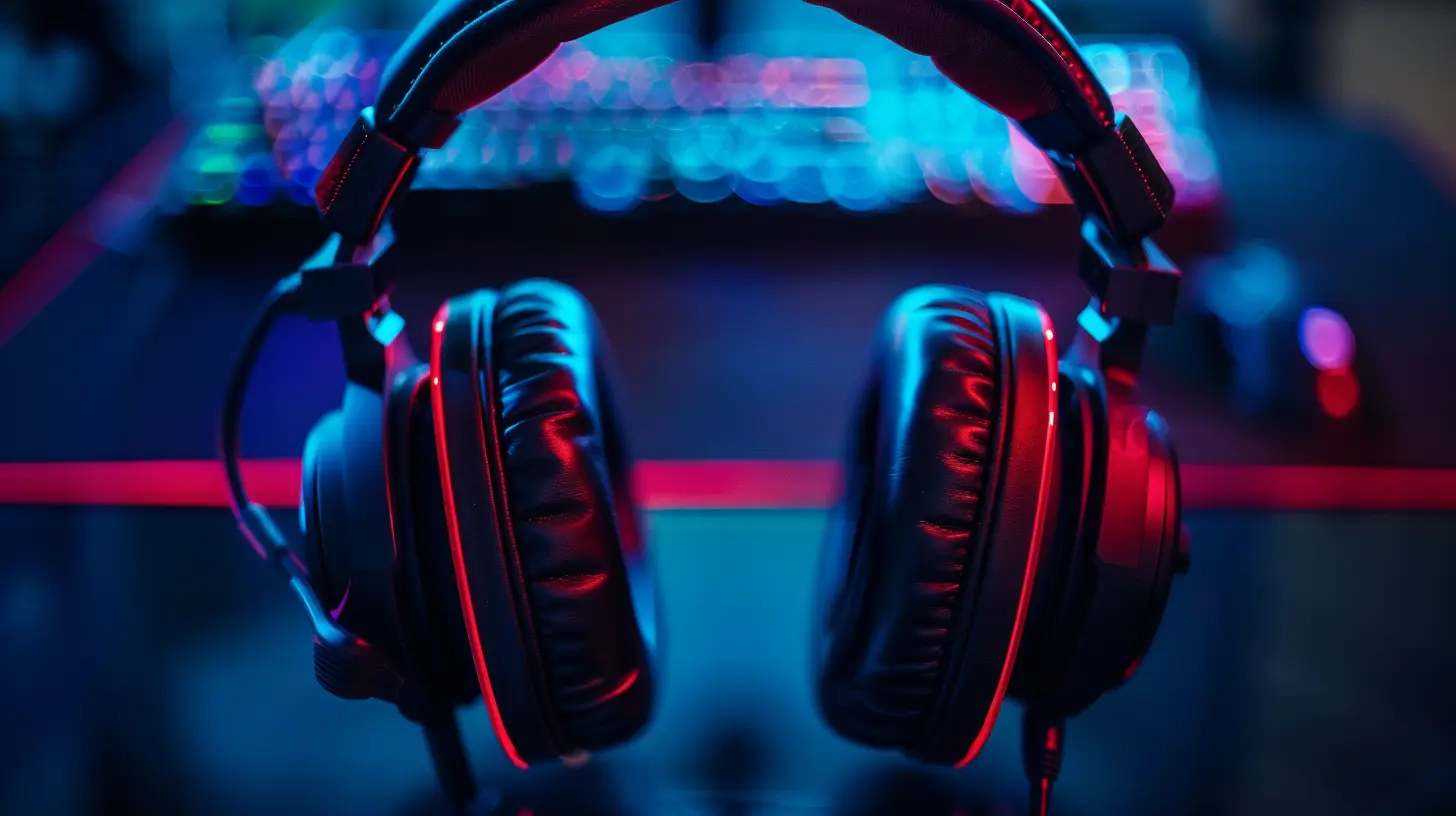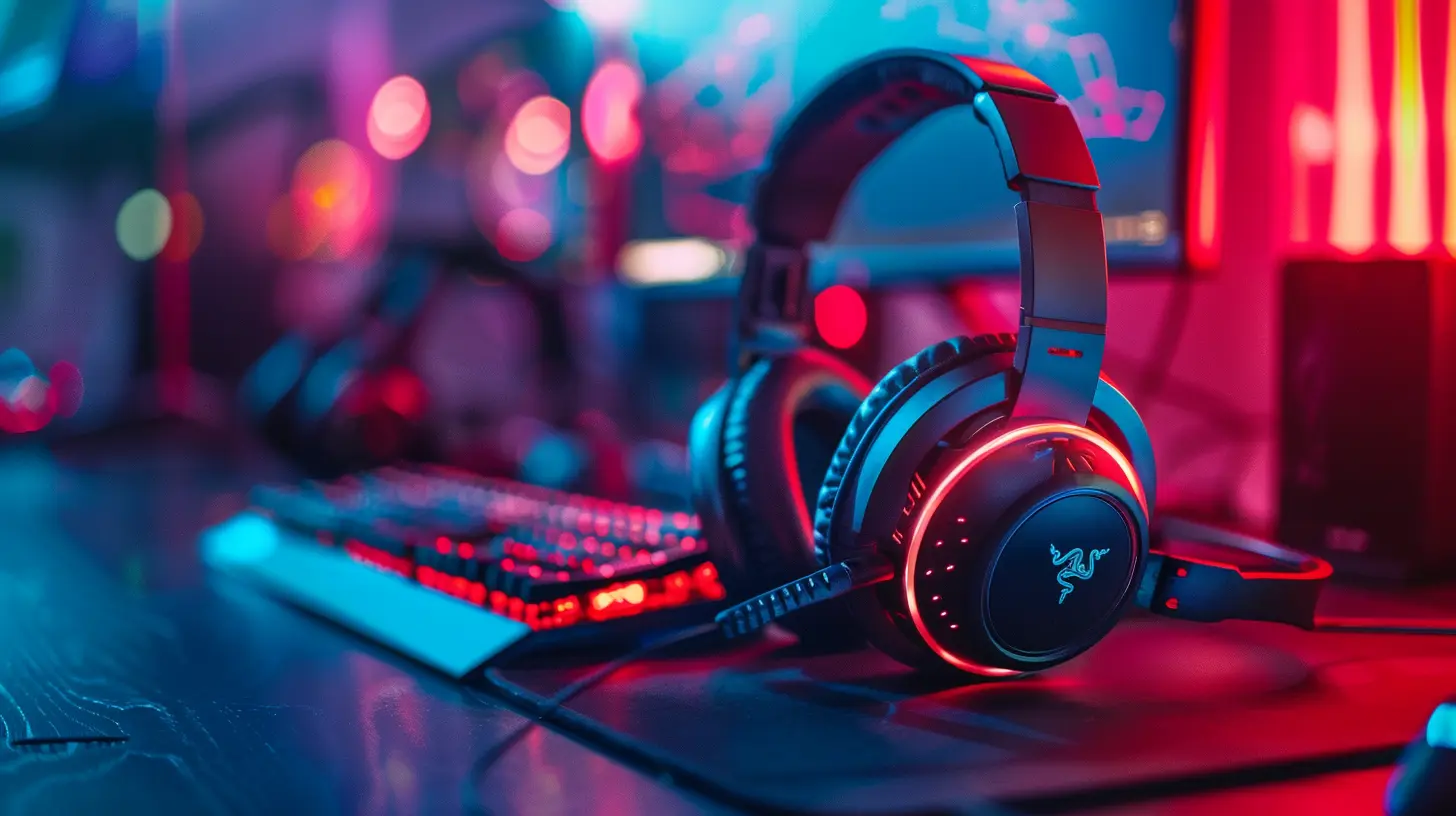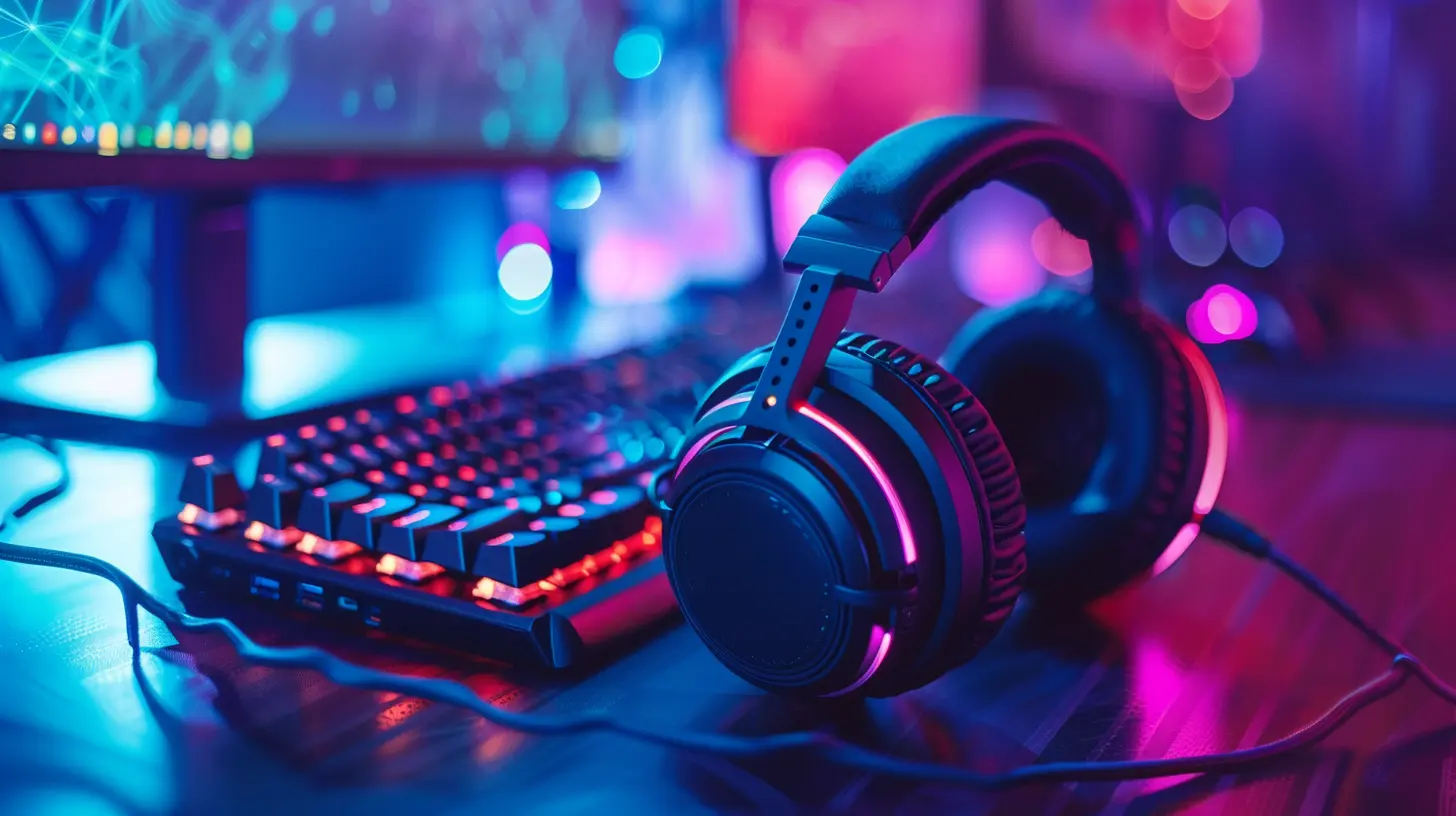How to Select the Perfect Gaming Headset for Competitive Play
31 May 2025
When it comes to competitive gaming, every little advantage counts. You need lightning-fast reflexes, a killer strategy, and, of course, the right gear. While most gamers focus on high-refresh-rate monitors and low-latency mice, they often overlook one of the most crucial tools in their arsenal—the gaming headset.
A solid gaming headset isn’t just about hearing footsteps; it’s about precise audio cues, crystal-clear communication, and all-day comfort. But with so many options on the market, how do you choose the best one? Strap in, because we’re diving deep into everything you need to consider before picking the perfect gaming headset for competitive play. 
1. Sound Quality: The Game-Changer
Surround Sound vs. Stereo
When you're locked in a clutch moment, every sound matters. Should you go for traditional stereo audio or fully immersive surround sound?- Stereo Headsets: Offer solid audio quality but lack directional awareness. Great for casual gaming but not ideal for high-stakes competitive matches.
- Virtual Surround Sound (7.1, 5.1, etc.): Creates an immersive 3D soundscape, allowing you to pinpoint enemy footsteps, gunfire, and environmental cues. Crucial for games like CS:GO, Valorant, or Call of Duty.
Driver Size & Type
Bigger isn’t always better, but in this case, larger drivers (typically 40mm-50mm) deliver richer sound, deeper bass, and clearer highs. Also, look for neodymium drivers, as they tend to provide better overall sound quality than typical plastic ones.
2. Microphone Clarity: Command Your Team
Noise-Canceling Microphones
Communication is key in any competitive scenario. A noise-canceling microphone ensures that your voice is loud and clear, even in a noisy environment. Look for headsets with cardioid or bidirectional mics, which focus on your voice while blocking out background noise.Detachable vs. Retractable Mics
- Detachable Microphones: Good for gamers who also use their headsets for music and want a clean aesthetic when a mic isn’t needed.- Retractable Microphones: Offer flexibility and always stay connected when you need them.
A bad mic can be the difference between a well-orchestrated play and teammates mishearing your callouts—it’s that serious! 
3. Comfort: Game Longer, Play Better
Lightweight Design
A heavy headset may feel premium but can become unbearable after long gaming sessions. Look for lightweight materials like aluminum or high-quality plastic to prevent neck strain.Padding & Ear Cup Material
Ever experienced ear fatigue from a cheap headset? That’s because of poor padding. Memory foam ear cups wrapped in breathable fabric or genuine leather are your best bets for comfort. Avoid stiff, plastic-feeling cushions that can get sweaty and uncomfortable over time.Adjustability & Fit
No two heads are the same size, and the perfect gaming headset should have an adjustable headband and rotating ear cups for a snug, comfortable fit. If your headset feels too tight or too loose, it can quickly become a distraction.
4. Wired vs. Wireless: The Latency Debate
Wired Headsets: For the Purists
A wired connection (3.5mm or USB) delivers zero latency and consistent audio quality—a must for professional and competitive gamers. Plus, you don’t have to worry about battery life.Wireless Headsets: Convenience Meets Performance
Wireless gaming headsets have improved dramatically. Low-latency 2.4GHz wireless connections and quality Bluetooth options make them viable for competitive gaming. However, you’ll need to keep an eye on battery life, and there’s still a slight delay compared to wired setups.So, which one should you get? If you're aiming for absolute precision, wired headsets are still king. But if you value flexibility and cable-free gaming, a quality wireless headset with low-latency tech is a solid alternative.
5. Compatibility: Will It Work With Your Setup?
Before you pull the trigger on a headset, make sure it’s compatible with your gaming platform. Some headsets work flawlessly across PC, Xbox, PlayStation, and Switch, while others might need adapters.- PC Gamers: Most wired and wireless headsets work seamlessly.
- Console Gamers: Look for officially licensed headsets to ensure compatibility.
- Mobile & VR Players: A lightweight, Bluetooth-capable headset may be the best option.
Check the box or product description—not all headsets work across all platforms without additional accessories.
6. Build Quality & Durability: Is It Built to Last?
Materials Matter
A cheap plastic headset might save you money, but if it falls apart after a few months, was it really worth it? Look for headsets with metal frames, reinforced hinges, and durable cables to ensure longevity.Detachable Cables and Replaceable Parts
The ability to replace cables, ear cushions, and even the microphone can extend the life of your headset and save you money in the long run. Some high-end headsets allow you to swap out components rather than replace the entire unit.7. Extra Features: Do You Need Them?
RGB Lighting
Flashy? Yes. Necessary? Not really. If you like aesthetics, go for it, but don’t let RGB be the deciding factor in your purchase.Customizable EQ & Software Support
Some high-end headsets allow you to tweak sound profiles, adjust mic sensitivity, and even program custom audio presets. If you like fine-tuning your sound experience, look for headsets that come with dedicated software support.Surround Sound Software
Some gaming headsets offer built-in surround sound, while others rely on third-party software like Dolby Atmos or DTS:X. Consider whether you want hardware-based or software-based surround sound when making your choice.8. Price vs. Performance: Finding the Sweet Spot
You don’t need to drop $300 on a premium headset to get great performance. Some of the best competitive gaming headsets are in the $80-$150 range.- Budget ($50 - $80): Basic sound quality, decent mic, no frills.
- Mid-Range ($80 - $150): Good audio drivers, noise-canceling mic, solid comfort.
- Premium ($150 - $300+): Top-tier audio, wireless options, premium materials, software support.
Try to balance price with performance—don’t fall for overpriced gimmicks, but don’t cheap out on something that could cost you matches.
Conclusion: Make the Right Choice
Picking the perfect gaming headset for competitive play isn’t just about getting the most expensive option—it’s about finding the right headset for your needs. Want zero-latency audio? Go wired. Need freedom to move? A low-latency wireless headset might be best. Prioritizing comfort for marathon gaming sessions? Look for memory foam cushions and a lightweight frame.No matter what, stick to what works best for YOU. After all, in the world of competitive gaming, sound is just as important as sight—choose wisely, and let your headset be a weapon as sharp as your skills.
all images in this post were generated using AI tools
Category:
Computer PeripheralsAuthor:

Adeline Taylor
Discussion
rate this article
3 comments
Paul McLaughlin
Choosing the right gaming headset is crucial for competitive play. Prioritize comfort, sound quality, and microphone clarity to gain a competitive edge. Don’t settle for less; invest in a headset that enhances your experience and helps you communicate effectively with your team. Game on!
June 14, 2025 at 12:47 PM

Adeline Taylor
Absolutely! A well-chosen gaming headset can significantly impact performance. Comfort, sound quality, and microphone clarity are key factors that elevate the gaming experience and teamwork. Happy gaming!
Nadia McKibben
Great insights on choosing a gaming headset! Your tips on sound quality and comfort are particularly valuable for competitive players. Looking forward to trying out your recommendations.
June 4, 2025 at 4:30 AM

Adeline Taylor
Thank you! I'm glad you found the tips helpful. Enjoy exploring the recommendations, and happy gaming!
Calyx McLanahan
Great insights, really helpful tips!
June 2, 2025 at 4:45 AM

Adeline Taylor
Thank you! I'm glad you found the tips helpful!



